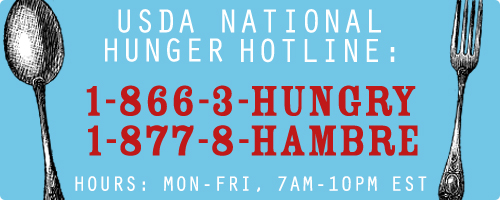Posted in Children, Healthcare, Hunger, Immigration
Puede encontrar una versión en español de esta publicación aquí.
Note: this post was last updated March 3, 2020.
As of February 24, 2020, the new public charge rule is in effect. Here’s what immigrant families in South Carolina need to know about the new public charge rule:
What is “Public Charge”?
The “public charge test” is used by immigration officials to decide whether a person can enter the U.S. or get a lawful permanent resident status (green card). In this test, officials look at income, employment, health, age, education/skills (including English skills), family situation, and whether a sponsor signed a contract (“affidavit of support”) promising to support the person. Officials can also look at whether a person has used certain benefit programs. Many immigrants are exempt from the public charge test (see below for a complete list of immigration statuses that are exempt from the public charge rule).
The government has changed how it makes public charge decision to make it more difficult for immigrants from low-income backgrounds to come into this country legally and apply for residency. The government is also expanding the types of public benefits that could count against an immigrant in the public charge test.
The new public charge rule applies to the following immigrants:
- People applying for green cards through an employment-based visa
- People applying for green cards through family, particularly spouses, parents, children and siblings of U.S. citizens; spouses and unmarried children of green card holders
- Green card holders who return to the U.S. after spending six months or more abroad
- People seeking a non-immigrant visa
The new public charge rule DOES NOT apply to:
- Green card holders applying for citizenship
- Temporary Protected Status applicants/holders
- Special Immigrant Juveniles
- DACA recipients
- People applying for green cards through asylum or refugee status, Violence Against Women Act, U or T visas, Afghan or Iraqi Special Immigrant, Cuban or Haitian Entrant, NACARA, Amerasian petitions or the Haitian Refugee Immigration Fairness Act
What benefits count for Public Charge?
- Supplemental Nutrition Assistance Program (SNAP or “food stamps”)
- Section 8 housing
- Supplemental Security Income (SSI) from Social Security
- Temporary Assistance for Needy Families (TANF)
- Federal, state, and local cash assistance for income
- Non-emergency Medicaid (unless it’s for people under 21 and pregnant women)
- Other subsidized housing
- Long-term institutionalization at the government’s expense
It is important to know that receiving public benefits does not automatically make you a public charge. The federal government will look at other factors too, such as age, education, language skills, disability and overall income level. Having income below 125% of the federal poverty line would weigh heavily against an applicant, even if they never received public benefits.
Public benefits used before February 24, 2020 do not count. The rule is not retroactive.
What benefits do not count for Public Charge?
The following public benefits cannot be considered in the public charge test:
- Women, Infants and Children (WIC) program
- Children’s Health Insurance Program (CHIP-Medicaid)
- Medicaid for people under 21 and pregnant women
- Hospital financial assistance programs
- Free lunch and other school-based benefits
- Energy assistance
- Veteran’s benefits
- Federal Old Age, Survivors, and Disability Social Security Insurance (OASDI)
- Government pensions; government employee health insurance or transportation benefits
- Unemployment insurance
- Workers compensation
- State disability insurance
- In-state college tuition
- Medicare Part D subsidies
- Disaster relief or government loans that require repayment
These programs are safe to get—public charge DOES NOT APPLY.
My children are U.S. citizens and receive some public benefits, does that make me, or them, a public charge?
No. Programs used by your citizen children will NOT be considered for public charge. It is safe to keep your children enrolled in these programs regardless of what the parent’s immigration status is.
Any information you give on an application for public benefits will be used only to determine your child’s eligibility for the program. This information is not used for immigration enforcement. You do not have to provide information about your immigration status if you are only applying for public benefits for other people in your family. You should make sure you provide only the information needed. Do not provide any false information.
Educate yourself – you can access these public benefit programs for your family without fear when you know your rights!
Have more questions about public benefits or public charge? Contact Louise Pocock, SC Immigration Policy Attorney by email at [email protected] or by phone at 803-779-1113 ext. 112.
SC
Appleseed Legal Justice Center does not provide direct immigration
representation for clients. For free or low-cost immigration assistance options
in your area, go to: https://www.immigrationadvocates.org/nonprofit/legaldirectory/


